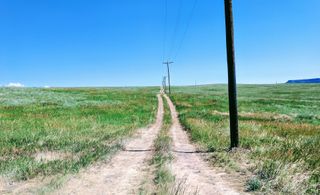A third of rural England struggles to make mobile phone calls
Just 33 per cent can make indoor calls on all four networks

Rural residents face being excluded from the economic, social and personal benefits of the digital economy because of poor mobile network coverage, warns a new report from Rural England.
The State of Rural Services report claims that it is impossible to make a phone call on all four networks in a third of all rural buildings – a figure that compares unfavourably with the 3 per cent rate for urban premises.
What’s more, the report says 4G is inaccessible in 58 per cent in rural buildings compared to just one sixth in urban areas.
- Everything you need to know about 5G
- Ofcom plans to improve rural connectivity
- The best rugged smartphones of 2019
Rural mobile coverage
According to Ofcom’s Connected Nations 2018 report, almost all properties can receive a good indoor 4G signal from at least one operator while 77 per cent are covered by all four major networks – EE, O2, Three and Vodafone – up from 65 per cent last year.
However, while 83 per cent of urban premises receive what could be classified as “good” coverage, only 41 per cent of rural properties do, and in some areas there is no coverage at all.
While the improvements made by all major operators in their networks is welcomed, Rural England says rural areas risk being cut off. Poor connectivity means it is difficult to build a business, there is limited access to new entertainment and education services, and people will have access coping with a ‘digital-by-default’ approach to government services.
This, the report argues, is being compounded by cuts to public services, such as transport and libraries, and a declining high street.
Are you a pro? Subscribe to our newsletter
Sign up to the TechRadar Pro newsletter to get all the top news, opinion, features and guidance your business needs to succeed!
“These findings confirm that the situation for people living in rural England is not improving,” said Graham Biggs, chief executive of the Rural Services Network. “The country faces a time bomb if nothing is done to address their needs. Rural areas have been ignored for long enough. It is time for all policies to be rural proofed. Rural communities deserve better than they currently get, they deserve the chance to thrive.”
Ofcom is looking at 5G licence coverage obligations to address the issue, as well as the feasibility of spectrum sharing. This would allow multiple users of the same frequencies. For example, if an operator had a licence for certain spectrum but wasn’t using it, a local mobile operator could take advantage.
- Here are the best mobile phone deals for February 2019
Steve McCaskill is TechRadar Pro's resident mobile industry expert, covering all aspects of the UK and global news, from operators to service providers and everything in between. He is a former editor of Silicon UK and journalist with over a decade's experience in the technology industry, writing about technology, in particular, telecoms, mobile and sports tech, sports, video games and media.
Most Popular

